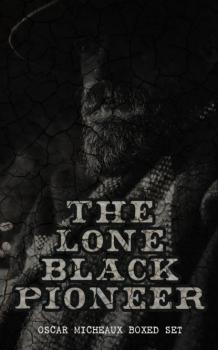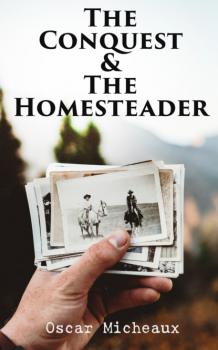MREADZ.COM - много разных книг на любой вкус
Скачивание или чтение онлайн электронных книг.¿Qué será de ti? / Como vai você?
¿Qué será de ti? / Como vai você? recoge piezas significativas de veintiséis poetas brasileños y nos presenta un reflejo del concierto polifónico que supone la poesía del gigante de Sudamérica. La presente antología de poesía joven de Brasil asume la apuesta de no buscar el canon sino el riesgo; no el pasado sino el futuro de la poesía brasileña. El resultado de esta pesquisa es una muestra cuyas voces marcarán el devenir inmediato de la poesía de aquel país. Dueños de una voz propia, cada uno de estos poetas toma la parte de la historia literaria que le corresponde; y se incrusta en el universo literario que este volumen pone ahora en manos del lector de habla hispana y portuguesa para demostrar que, más allá de un concretismo agotado y un modernismo preocupado de su evolución, estamos ante la llegada de nuevas voces y otros movimientos que establecerán nuevos paradigmas en el firmamento de la poética brasileña.
Contigo a la distancia
Ya llevamos más de un año de pandemia y de distintos confinamientos alrededor del mundo. En los inicios de las cuarentenas muchos de los tratamientos continuaron a distancia con diversas tecnologías. Aunque había debates previos sobre esta modalidad de abordaje, la mayoría del mundo psi dejó dichos debates y polémicas bajo el manto de «al menos se pudo continuar». Lo cual es cierto, para muchísimos pacientes y analistas. La transformación en los dispositivos psi de este tiempo es la más importante desde sus inicios hace más de un siglo. No se puede avanzar sin poner a trabajar qué implican estos cambios. Es necesario rescatar el pensamiento de su adormecimiento entre las amenazas de subsistencia y el alivio de poder seguir trabajando, como sea. Este libro rescata debates previos y actuales sobre qué implica esta transformación que modifica y modificará nuestros abordajes clínicos.
Muchachos que no besan en la boca
En más de una docena de libros, la poesía de Luis Aguilar ha ido construyéndose como una bitácora de páginas donde lo que entra por las ranuras no es nostalgia sino el filo de versos como navajas de afeitar, cristales de una ventana rota: el frío, duro y desnudo. Muchachos que no besan en la boca es un libro en voz alta; esta caída sin red de protección permite asomarnos a dos submundos: el de la poesía sin paliativos y el del lucrativo negocio de la prostitución masculina en Cuba -no menos lucrativo en el resto del mundo, incluido España-, desde una óptica que roza el cinismo y se acerca a la contemplación, sólo para desnudarse frente a la cama sin dramatismo ni lamentos.
Yago
"Fake News". A pesar de estar tan en boga en nuestros días, Shakespeare ya era consciente de la utilidad de este recurso a la hora de destruir destinos y por ello lo empleó como una de las «estrategias del mal» con las que Yago se vengaría de Otelo, y que lo convertirían en el antagonista más despiadado. No en vano rivaliza en importancia con Ricardo III.
Harold Bloom analiza la figura de un Yago resentido y envidioso, dolido por no obtener el ascenso del que se creía merecedor. Lo define como «un pirómano que quiere prender fuego a todo y a todos». Sus deseos de venganza no conocen límites y su perseverancia y astucia lo llevarán a desarrollar una serie de estratagemas que en nuestros días se han convertido en mandamientos del maligno arte de la manipulación.
Gracias a la traducción impecable de Ángel-Luis Pujante, el lector de habla hispana podrá conocer la infernal interioridad de Yago de la mano de Bloom, el más ávido lector shakesperiano y el mayor revolucionario en el análisis literario que nos ha dado el siglo xx.
Luz que fue sombra
"Luz que fue sombra. Diecisiete poetas polacas (1963-1981)" permitirá a los lectores de español sumergirse en la poesía polaca, cuya importancia en el mundo es indiscutible. Poetas de una calidad literaria y autenticidad extraordinarias, singulares, y que suenan con voz propia en el panorama actual.
En esta antología, ellas desnudan su alma y nos permiten compartir su libertad de sentir, de hacer, de pensar. Huyendo de etiquetas, fiel cada una
a su individualidad y a su lenguaje poético propio, pero todas con un lirismo sencillo, preciso y cautivador en sus poemas, nos hablan de emociones, de recuerdos, del tiempo, de la niñez, de la memoria, de liberación, de desengaño, de lo cotidiano, de amor, de experiencias personales, de sorpresa, de sensibilidad, de vacío, de soledad, de optimismo, de ilusión, de esperanza… Nos hablan de vida. Es poesía y es nuestra realidad humana la que sale a la luz… ¡Luz que fue sombra!
The Lone Black Pioneer: Oscar Micheaux Boxed Set
This collection brings to you three semi-autobiographical novels by Oscar Micheaux, the famous black explorer, author, film director and independent producer. Although the short-lived Lincoln Motion Picture Company was the first movie company owned and controlled by Black filmmakers, Micheaux is regarded as the first major African-American feature filmmaker, a prominent producer of race film, and has been described as «the most successful African-American filmmaker of the first half of the 20th century.» He produced both silent films and sound films. However, Micheaux's early life as a black pioneer was equally fascinating and was adapted as a critically-acclaimed silent-era film. He not only had a stellar-rise but also lost out his hard-earned property to his estranged wife and his father-in-law. Read the lesser-known stories of his life through these 3 novels: The Conquest – Through the story of the eponymous hero, Micheaux, the author depicts his pains and struggles in becoming a successful homesteader in Dakota. Largely autobiographical, the novel details the early years of despair and hard work that went into surviving the tough Wild West. The Homesteader – Through the fictional story of Jean Baptiste, Micheaux shows how his ill-fated marriage led to his misery. His preacher father-in-law began psychologically manipulating his daughter and Micheaux to disastrous results. The Forged Note – The novel shows how Micheaux's property was acquired through forgery and in many ways is a sequel to The Homesteader. However, in this fictional tale, the protagonist Sidney Wyeth has a chance to find the romance again in his life. Will he eventually succeed the second time?
The Lone Ranger Rides
In the rogue Wild West, laws don't apply equally to everyone. They are made by the corrupt people and for the corrupt people. But Lone Ranger is on a mission. A mission to deliver justice and bring the rogue ones under the ambit of laws. Together with Tonto, Lone Ranger will do everything in his power to survive and outwit his enemies. Read the original inspiration behind the famous radio series and the Disney movie featuring Armie Hammer and Johnny Depp! Excerpt: "In a remote basin in the western part of Texas, the Cavendish clan raised cattle. From the vast level acreage, where longhorns grew fat on lush grass, the surrounding hills looked verdant and hospitable; but this was pure deceit on Nature's part. Those hills were treacherous, and Bryant Cavendish loved them for that selfsame treachery. Sitting on the porch of his rambling house, the bitter old man spat tobacco-flavored curses at the infirmities that restricted him. His legs, tortured by rheumatism, were propped on a bentwood chair, and seemed slim and out of proportion to his barrel-shaped torso. His eyes, like caves beneath an overhanging ledge, were more restless than usual, as he gazed across the basin. He rasped a heavy thumbnail across the bristle of his slablike jowl…"
The Forged Note
"The Forged Note" is a semi-autobiographical novel that shows how Oscar Micheaux's property as a real-life Black pioneer in Dakota was acquired through forgery by his father-in-law, through the life-story of the protagonist, Sidney Wyeth. However, in the world of fiction there is still a possibility of love. Mildred awaits Sidney's return even after the revelation of the dark secret that tore them asunder. Will the two star-crossed lovers ever meet again? Keep reading! Excerpt: "He sat at a desk in the small office he had taken. Before him were papers and bills—unpaid—and letters too, he had not opened, while to one side were others he had read, and had typed replies thereto. He had paused in his work, and was gazing stupidly at the litter before him. His name was Sidney Wyeth, and his home was away off in the great northwest, in a strip of territory known as the Rosebud Country. As we meet him now, however, he is located on the fifth floor of an office building, slightly toward the outskirts of the business district of one of our great American cities. He is by profession an author, which might explain his presence at a desk. It happens, however, that he is not there this time as a weaver of dreams, but attending to matter in connection with the circulation of his work, for he is his own publisher…"
The Conquest
The novel narrates the story of Micheaux, who bears the same name as its famous author, and his struggles to become a successful homesteader in Dakota. Largely autobiographical, the novel provides an insight into the lesser known history of the American Wild West where even the Black pioneers were surviving and fighting against the tough and unforgiving terrain. Read on! Excerpt: "I was born twenty-nine years ago near the Ohio River, about forty miles above Cairo, the fourth son and fifth child of a family of thirteen, by the name of Devereaux—which, of course, is not my name but we will call it that for this sketch. It is a peculiar name that ends with an «eaux,» however, and is considered an odd name for a colored man to have, unless he is from Louisiana where the French crossed with the Indians and slaves, causing many Louisiana negroes to have the French names and many speak the French language also. My father, however, came from Kentucky and inherited the name from his father who was sold off into Texas during the slavery period and is said to be living there today. He was a farmer and owned eighty acres of land and was, therefore, considered fairly «well-to-do,» that is, for a colored man. The county in which we lived bordered on the river some twenty miles, and took its name from an old fort that used to do a little cannonading for the Federal forces back in the Civil War…"
The Conquest & The Homesteader
The Conquest – The novel narrates the story of Micheaux, who bears the same name as its famous author, and his struggles to become a successful homesteader in Dakota. Largely autobiographical, the novel details the early years of struggle and hard work that went into surviving the tough Wild West. The Homesteader – Jean Baptiste is a hard-working man whose only dream is to make a life for himself in Dakota. However, even as a Black pioneer, he is doomed to be separated from the love of his love due to racial laws prohibiting interracial marriages. Thus, to avoid the all-consuming loneliness, he instead decides to get married to Orlean. However, his new father-in-law is a nightmare from hell and although a preacher, all his attention is focused upon him rather than in the service of god. Can Baptiste survive the ordeal or will he succumb to the psychological pressures?









